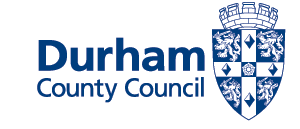School governors
The role of the school governor is demanding but very rewarding and is a good way to give back to your local community. School governing bodies work with schools to make sure they provide the best possible education for their pupils.
What school governors do
The role of the governing body is a strategic one with three core functions:
- setting strategic direction
- creating robust accountability
- ensuring best use of financial resources
The work of the governing body is driven by the school improvement plan. Discussions, decisions and actions for governors focus on school finance, staffing matters, use and condition of premises, pupils' wellbeing, curriculum, data and assessment, working with stakeholders, admissions and organisational changes.
The full governing body must meet at least three times per academic year but most meet more frequently through committee meetings. There is an expectation that governors will also undertake monitoring visits into school to find out more about the school throughout the year. Governors work closely with the headteacher and make decisions collectively as a team.
Types of governors
Depending on the type of school, a governing body may consist of parent, staff, co-opted, local authority, foundation governors and associate members (not governors).
Parent governors are elected by other parents at the school.
Any parent or carer of a child who is at the school at the time of election is eligible to stand. Parent governors may continue to hold office until the end of their term, even if their child leaves the school.
Schools must make every reasonable effort to fill parent governor vacancies through elections. The governing body can also directly appoint parent governors where there are not enough parents standing for election.
A person is disqualified from election or appointment as a parent governor if they are a county councillor, or if they work at the school for more than 500 hours in a school year.
Local authority governors are nominated by the council, but appointed by the governing body.
We can nominate any eligible person, but it is for the governing body to decide whether the person has the skills to contribute to the effective governance and success of the school.
Local authority governors have the same duties as any other governor. They do not represent our views, but are a representative of the wider community and we do not expect them to promote our views on issues.
A person is disqualified from being appointed as a local authority governor if they are eligible to be a staff governor of that school.
Teaching and support staff who are employed by either the governing body or by us to work at the school are eligible to be staff governors.
Staff governors are elected by the school staff and must be employed at the school and they stop being a staff governor if they stop working for the school. Volunteers at the school are not eligible.
There can only be one staff governor, but governing bodies may appoint members of staff as co-opted governors.
The headteacher is a member of the governing body because of their job.
The headteacher may at any time resign as a governor, or withdraw their resignation. To do this they must tell the clerk in writing.
Co-opted governors are appointed by the governing body.
They are people who in the opinion of the governing body have the skills required to contribute to the effective governance and success of the school.
In voluntary aided and controlled schools, foundation governors form the majority of governors. This reflects the financial contribution made by the church to the maintenance and improvement of the buildings, and the requirement that voluntary aided and controlled schools should provide Christian religious education and worship in accordance with the school's trust deed.
Foundation governors can be:
- appointed by the diocese, church or foundation body to represent the providers of the school
- appointed because of a job they have, such as the vicar, rector, or priest of the parish where the school is
Useful contacts
Roman Catholic Diocese
Director of Schools Diocese of Hexham and Newcastle
St Cuthbert's House
West Road
Newcastle upon Tyne
NE15 7PY
0191 243 3313.
Church of England Diocese
Diocesan Board of Education
Education Board Limited
Church House
St John's Terrace
Percy Main
North Shields
E29 6HS
0191 270 4100
Associate members are not governors, but are appointed to the governing body because it is felt they can offer particular skills or areas of expertise. They may have limited voting rights.
What to do if you are interested in becoming a school governor
You can express an interest to be a school governor for more information about current vacancies.
If you decide to become a school governor or associate member you are required to undertake a Disclosure and Barring Service (DBS) check and comply with the eligibility criteria, as defined by the Department for Education (DfE).
Training
We offer a wide range of training courses for school governors:
What we can offer schools
We offer a range of support to governing bodies of schools and academies in County Durham and across the region - Commercial Services: Schools and Education
- Email EDGS.Administration@durham.gov.uk
- Telephone 03000 265 866

 Share this page on Facebook
Share this page on Facebook
 Share this page on Twitter
Share this page on Twitter
 Print this page
Print this page





